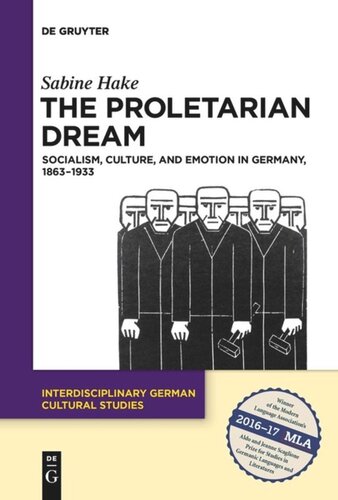

Most ebook files are in PDF format, so you can easily read them using various software such as Foxit Reader or directly on the Google Chrome browser.
Some ebook files are released by publishers in other formats such as .awz, .mobi, .epub, .fb2, etc. You may need to install specific software to read these formats on mobile/PC, such as Calibre.
Please read the tutorial at this link: https://ebookbell.com/faq
We offer FREE conversion to the popular formats you request; however, this may take some time. Therefore, right after payment, please email us, and we will try to provide the service as quickly as possible.
For some exceptional file formats or broken links (if any), please refrain from opening any disputes. Instead, email us first, and we will try to assist within a maximum of 6 hours.
EbookBell Team

4.0
86 reviewsNow in paperback
The proletariat never existed—but it had a profound effect on modern German culture and society. As the most radicalized part of the industrial working class, the proletariat embodied the critique of capitalism and the promise of socialism. But as a collective imaginary, the proletariat also inspired the fantasies, desires, and attachments necessary for transforming the working class into a historical subject and an emotional community. This book reconstructs this complicated and contradictory process through the countless treatises, essays, memoirs, novels, poems, songs, plays, paintings, photographs, and films produced in the name of the proletariat. The Proletarian Dream reads these forgotten archives as part of an elusive collective imaginary that modeled what it meant—and even more important, how it felt—to claim the name "proletarian" with pride, hope, and conviction. By emphasizing the formative role of the aesthetic, the eighteen case studies offer a new perspective on working-class culture as a oppositional culture. Such a new perspective is bound to shed new light on the politics of emotion during the main years of working-class mobilizations and as part of more recent populist movements and cultures of resentment.
Aldo and Jeanne Scaglione Prize for Studies in Germanic Languages and Literatures 2018